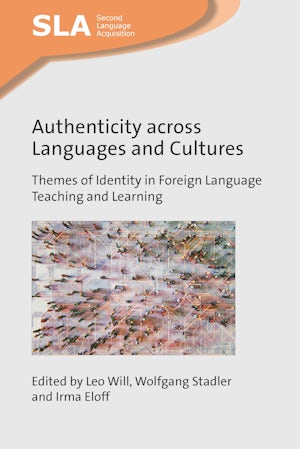Contributors
Claire Kramsch: Foreword: Authenticity in Our Times
Preface: Authenticity Revisited: It’s Getting Personal
Chapter 1. Leo Will and Richard S. Pinner: The Concept of Authenticity in Foreign Language Teaching and Learning
Part 1: Authenticity and Language Teaching
Chapter 2. Wolfgang Stadler and Anna Dreher: «Что такое аутентичность»? The Concept(s) of Authenticity in Russian as a Foreign Language
Chapter 3. Matthew Dame and Natalia Dame: Multilingualism and Authenticity in Russian Heritage Language Teaching Practices
Chapter 4. Carol Spöttl, Eva Konrad, Veronika Schwarz, Elisa Guggenbichler and Benjamin Kremmel: Authenticity in Language Assessment: Revisiting the Implementation of a Key Principle
Chapter 5. Anna Shkireva: Authenticity Beyond Teaching Materials: Teachers’ Authentic Care on Students’ Persistence at the Beginner Level of Foreign Language Courses
Chapter 6. Wendy M. Whitehead Martelle: Designing for Authenticity: Making Sense of an English Pedagogical Grammar Course
Chapter 7. Maria Bondarenko: Rethinking Authenticity in SLA from the Perspective of L1 Use: A Concept of Cognitive Authenticity
Part 2: Authenticity and Identity
Chapter 8. Grit Alter: Authenticity, Curricula and Authentic Education
Chapter 9. Wietske Boon and Irma Eloff: Authenticity and the Psychology of Language and Learning During Early Childhood Education
Chapter 10. Elsabé Taljard: Authenticity in Language Teaching: An African Language Perspective
Chapter 11. Irene Heidt : When Moral Authority Speaks: Empirical Insights into Issues of Authenticity and Identity in Multilingual Educational Settings
Chapter 12. Veronika Makarova: Exploring Authenticity for an Endangered Heritage Language Context: Canadian Doukhobor Russian
Part 3: Authenticity and Aesthetics
Chapter 13. Candice Livingston and Hanlie Dippenaar: Autobiographical Fairy Tales for Authenticity in the English Classroom: A South African Higher Education Case Study
Chapter 14. Håvard Haugland Bamle: Indie-Folk Music and the Quest for First-Person Authenticity
Chapter 15. Annelise Brox Larsen: Authenticity and Literature(s) in Teacher Education: Bildung in Jigalong and Bárbmo
Chapter 16. Hanlie Dippenaar, Cheryl Logan and Candice Livingston: Authenticity and Authentic Voices in the Literature Curriculum of Pre-Service Teachers of English
Magdalena Kaltseis: Afterword: Taking Stock of the Authentic – Critical Synthesis and Timely Outlook
Index


